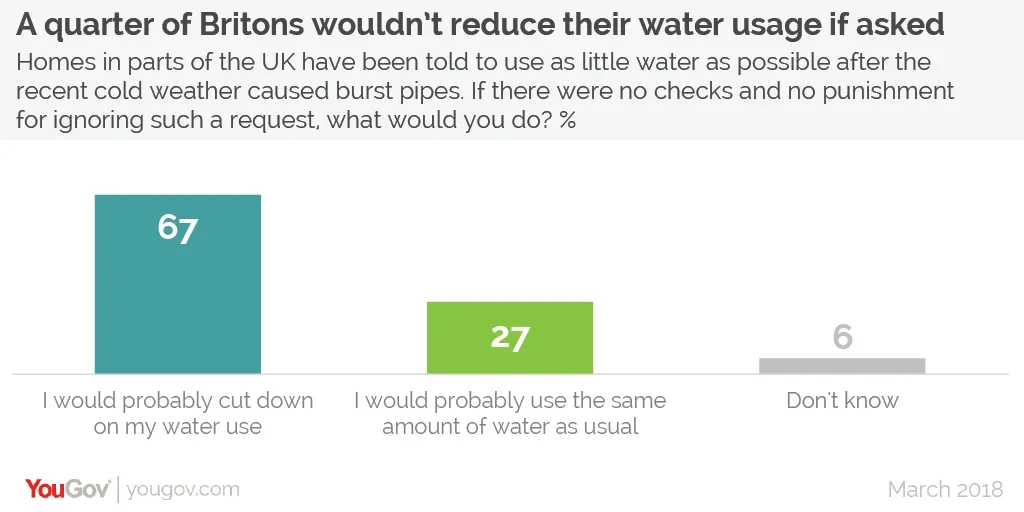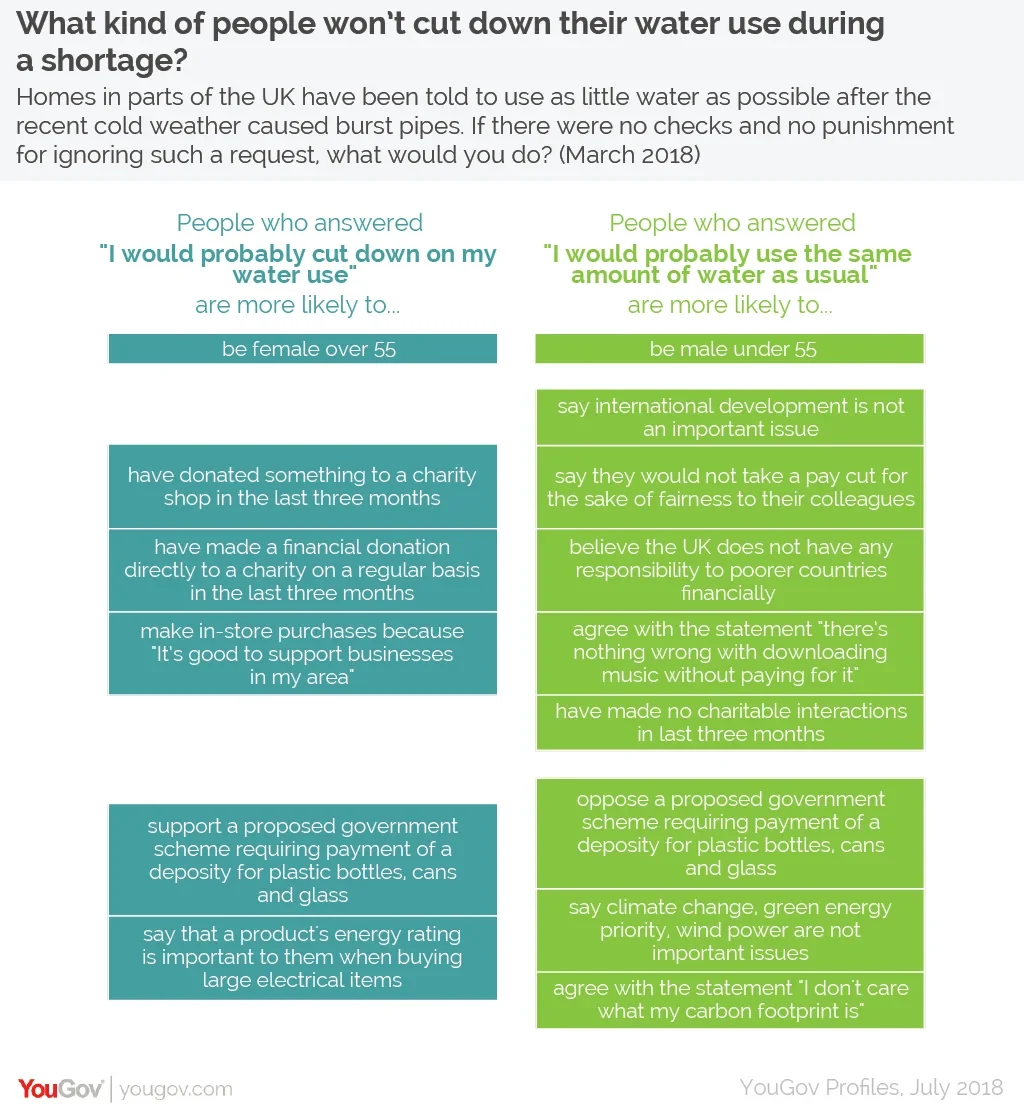YouGov Profiles reveals the characteristics setting apart those who would and would not conserve water when asked
With Britain experiencing its longest heatwave since 1976, Brits in many parts of the country are being asked to cut down on their water usage. The requests are only coming from the water companies at present, so there are no legal ramifications if Britons choose to ignore the pleas and spend four hours in the shower.
Back in March, when calls were also being made for Brits to cut down their water usage due to burst pipes after a cold snap, we asked the nation whether they would do so if asked. Two thirds of Brits (67%) told us that they probably would, while 27% confirmed they would probably just use the same amount of water as usual.

So who are the water wasters? Using YouGov Profiles we’ve looked at the key characteristics that set apart from those who would be willing to play their part in conserving water and those who wouldn’t. Out of the more than 340,000 variable contained in YouGov Profiles, each of the following referred to below comes in the top twenty for each group.
Water conservers vs water wasters
One of the key divisions between the two groups are age and gender. Those willing to cut their water usage tend to be older (i.e. aged 55+), and in particular be older women. By contrast, those who would keep their water usage constant are more likely to be men under the age of 55.
Unsurprisingly, water conservers are more likely to be greener than water wasters.
While the former are more likely to say that, when buying a large electrical item, it is important to them what energy rating it has (53% vs 37%), the latter are more likely to agree with the statement “I don't care what my carbon footprint is” (36% vs 18%).
Similarly, those who would refuse to reduce their water usage are more likely to say that wind power, international development, climate change and green energy priority are not important issues.
They are also are more likely to oppose government plans for a deposit scheme for plastic bottles, cans and glass – 22%, compared to 10% of the water conserving group.
Click image to enlarge
Community mindedness and egalitarianism separate the two groups
One in three water wasters (35%) haven’t made a charitable interaction in the past three months (compared to 21% of water conservers). In the same vein, those who would conserve water are more likely to have donated something to a charity shop (45% vs 29%) and to make regular financial donations to charities (25% vs 14%).
Those willing to conserve water if necessary are also more likely to be motivated to make in-store purchases on the basis that “it’s good to support businesses in my area” (37% vs 23%).
Those who would refuse to change their water habits are more likely to believe the UK does not have any responsibility to poorer countries financially (33% vs 19%), agree with the statement “there’s nothing wrong with downloading music without paying for it” (43% vs 25%), and are more likely to say they wouldn’t take a pay cut for the sake of fairness to their colleagues (59% vs 43%).
Photo: Getty









